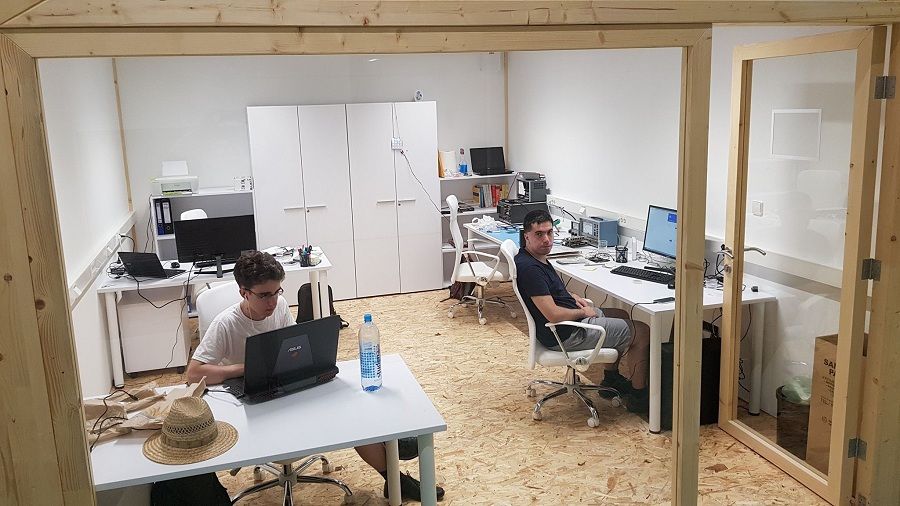Not everyone wants or needs state subsidies.
Dajgoro Labinac and Ante Medić have recently founded the Pulsar Laboratories startup. They entered the world of entrepreneurship last year, after just one year of work experience. Now they are their own bosses, working on projects for clients, but also on their own personal ideas, reports tportal.hr on June 25, 2018.
Their “crazy” plans for the future involve the space industry and sending the first Croatian rocket to space. They both love everything connected with space and technology, so they have named their company after a type of rapidly rotating star.
They have their offices and workshop at the Technological Park located at the Zagreb Fair, where they work on electronic solutions, software and product development, as well as providing consulting services to their clients. They say they do not have to look for clients, but that they come to them themselves.
“Our focus is on applied electronics, and prototypes of products are tailored to the needs of our customers. People often come up with an idea, want to achieve something or solve some sort of problem, and then we take it from the initial idea to the final prototype or product. We are now working on wireless temperature sensors,” said Ante Medić.

Like many in their sector, they did not have to wait long to get their first job. They worked for a company for a year but then quit and founded Pulsar together. Even before starting their business, they had customers waiting for them, so they never applied for financial support from the government.
“I understand what incentives are, but that actually means that people have to finance their competition. The state takes your taxes and then gives them to someone else, mainly your competitors,” said Medić. He believes that market competition is the only way a product can succeed. “'If a product is good, if customers want it, if it works in the market, then the company will grow. Of course, this is not the only precondition for success. But if it is backed by state subsidies or something else, it will collapse as soon as the grants disappear.”
One of the first tasks they worked on was the electronics for a smart wallet made by Baggizmo, their neighbours at the Technology Park, and now they are working on a new smart card for the same client.
They have worked on numerous projects, many of which were successful, but there were some failed attempts as well. “The most interesting thing is when we work on new projects when we start from scratch and have to figure out something that has not been done so far. The most challenging part is the production of a product as a meaningful whole,” said Medić.
They are present at international markets, and their products are primarily adapted to the needs of foreign buyers. Croatia is too small for what they are working on, and the purchasing power is not large enough. Work and material costs dictate the final prices and therefore such high-tech products cannot find buyers in Croatian market. “The world is open and it would be stupid not to take advantage of the opportunity and try to break into the international market,” he added.
They will soon be joined in the company by another engineer, but the search for new employees will not stop there. They are looking for engineers and developers, and the average salary is about 15,000 kuna gross. “We are now in the process of selecting candidates and soon there will be four of us. We will move to a larger office because it is really cramped here,” said Medić.
One of the projects they are working on is a signal generator and an analogue synthesizer, which they will soon submit to Končar's Institute of Electrical Engineering. “Generator is used to generate different waveforms and the synthesizer for creating noise and music. The music was created in this way in the seventies and eighties. It is a nice little niche and there are people who deal with it as a hobby, and we are trying to make a few kits for them,” explained Medić.
They also organise workshops where they teach children about soldering and electrical engineering. “The children who came were a little bit younger than we expected, and the assignment was intended for older children. But they were successful with our help and everyone eventually went home with a working decorative tree,” concluded Medić.
Translated from tportal.hr (reported by Lucija Adžić).


